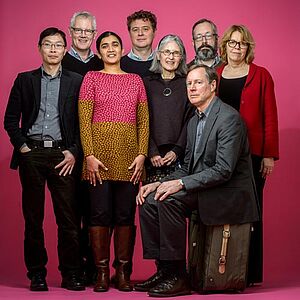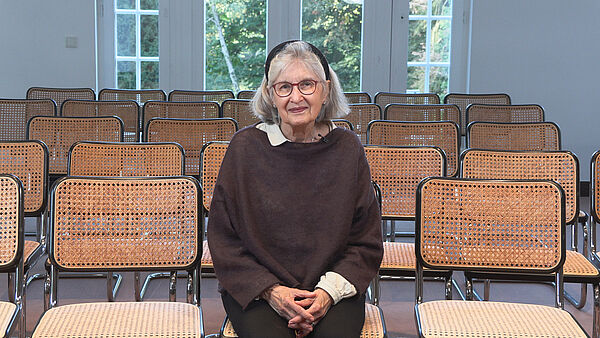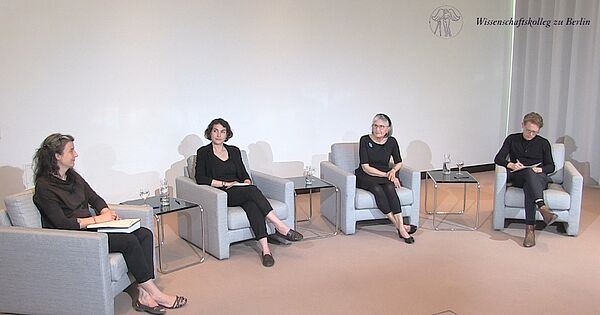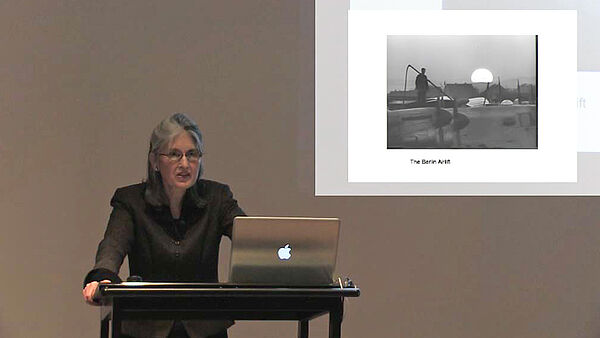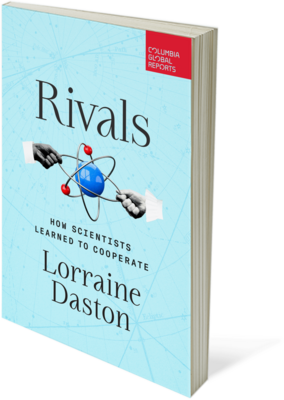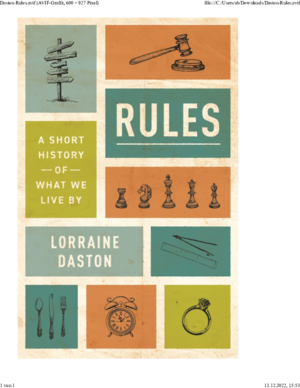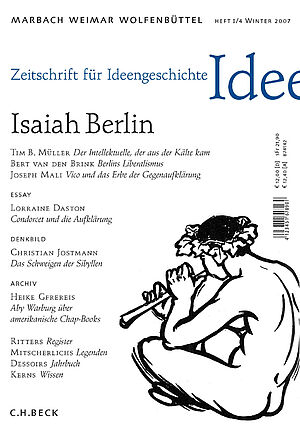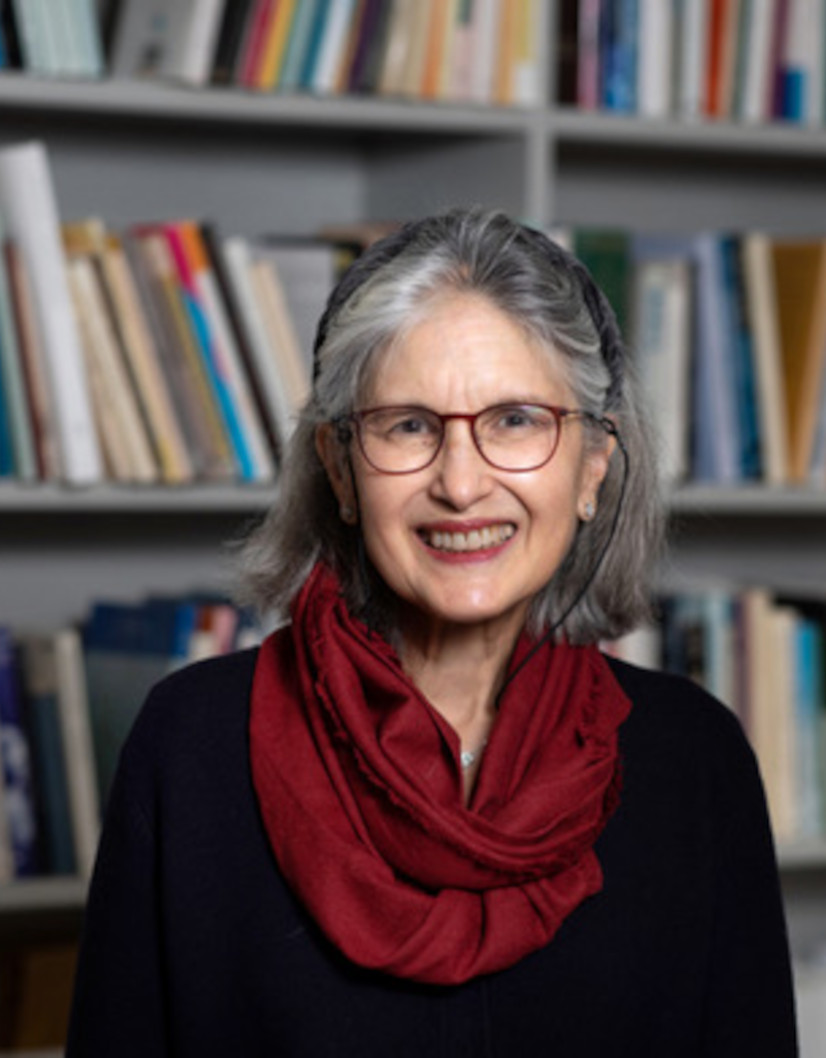
Lorraine J. Daston, Ph.D.
Director emerita; Professor, Committee on Social Thought
Max Planck Institute for the History of Science, Berlin
University of Chicago
Born in 1951 in East Lansing, Mich., USA
Studied History, Philosophy, Mathematics, and History of Science at Harvard and at Cambridge
Project
Rethinking Risk in a Dangerous Age
Misfortune is the human lot, whether in the form of an ice age, a plague, or an earthquake, and cultures everywhere have found ways of cushioning themselves against the worst-case scenario. Pliable building materials in earthquake zones, dikes and levees in flood plains, quarantining the sick, and institutionalized solidarity are all forms of risk management. But the dominant method for taming risk in the contemporary world is insurance. Since the eighteenth century, insurance has grown from a canny bet on the success of long-distance mercantile ventures into an immense and immensely wealthy global system based on vast databases and complex mathematical modelling of both the probabilities of disaster and also the performance of the financial markets in which insurance companies invest their reserves.Like their customers, insurance companies hedge their bets by taking out insurance in their turn, so-called reinsurance. The biggest reinsurance companies in the world sit at the top of a pyramid of primary and secondary insurers. In the last fifty years, the risks reinsurance firms are being asked to cover have climbed steeply. Climate change has increased the frequency and intensity of disasters like hurricanes, wildfires, floods, and mudslides, and the ever-denser concentration of populations in cities has also multiplied the damage claims when a catastrophe strikes an urban area.
These factors are forcing the reinsurance industry to rethink their own attitudes toward risk, including investment risks. We are in the midst of a quiet revolution in the way that those masters of disasters, the reinsurance firms, radically revise the business of risk in our dangerous age.
Recommended Reading
Coen, Deborah R. The Earthquake Observers: Disaster Science from Lisbon to Richter. University of Chicago Press, 2013.
Daston, Lorraine. “What Is an Insurable Risk? Swiss Re and Atomic Reactor Insurance.” In Managing Risk in Reinsurance: From City Fires to Global Warming, edited by Niels Viggo Haueter and Geoffrey Jones, 230–247. Oxford University Press, 2017.
Colloquium, 07.03.2023
The End of Natural Disasters
The purely natural disaster, for which no one is to blame, is an Enlightenment category. Previously, there were just disasters ("tribulationes", in medieval Latin), of mixed divine, human, and natural causation, and plenty of blame to go around. In the age of anthropogenic climate change, we are fast losing the category of the natural disaster – and with it, the concept of blameless evil. Not so long ago, the legal recognition of catastrophes for which no one was responsible, which were regrettable but beyond human reckoning or control, seemed a mark of progress: we had rid ourselves of the yoke of religious portents and chastisements, of reading divine wrath into events that were just part of the course of nature. To look for culprits for the damage caused by droughts or hurricanes seemed as benighted as hunting witches. But now enlightened opinion increasingly wonders whether natural disasters are really all that natural and poses hard questions about human responsibility – and liability.
My question is: what happens when we lose the Enlightenment category of natural disaster, and with it, the concept of blameless evil? As in the Enlightenment, great tectonic plates seem to be crashing up against one another in our heads. In the age of anthropogenic climate change and genetic engineering, the very idea of nature, autonomous and impervious to human will, seems to be dissolving. For good or for ill, the radius of human foresight and power – and with it the radius of human responsibility – has at least in our imaginations lengthened to the point that we have reversed roles with nature: no longer almighty mother (or cruel stepmother) to us cowering children, nature is now imagined as our ward, fragile and in need of our protection.
These metaphysical and moral changes are far too vast to compass in a single short talk. Here I’ll concentrate on the implications of the vanishing Enlightenment category of the purely natural disaster and the concomitant concepts of blameless evil and human responsibility. But instead of tracking these developments in philosophical treatises, I’ll focus on how the concrete practices of law courts and insurance companies are redefining in real time what disasters are and who’s responsible for them. My premise is that this is metaphysics (and ethics) in the becoming: these new practices for dealing with disasters are reshaping how we think about what nature and responsibility mean right now.
Köpfe und Ideen 2014
Save the Data
a portrait of Wendy Espeland, Jahnavi Phalkey, Theodore M. Porter, Lorraine J. Daston, Tong Lam, John Carson by Jürgen Kaube
Publications from the Fellow Library
Daston, Lorraine J. (New York, NY, 2023)
Rivals : how scientists learned to cooperate
Daston, Lorraine J. (Princeton, 2022)
Rules : a short history of what we live by The Lawrence Stone lectures
Daston, Lorraine J. (Berlin, 2018)
Gegen die Natur Against nature
Daston, Lorraine J. (Chicago, 2017)
Science in the archives : pasts, presents, futures
Daston, Lorraine J. (Jerusalem, 2015)
Before the two cultures : big science and big humanities in the nineteenth century Proceedings / The Israel Academy of Sciences and Humanities ; Vol. 9, No. 1
Daston, Lorraine J. (Chicago, Ill. [u.a.], 2013)
How reason almost lost its mind : the strange career of Cold War rationality
Daston, Lorraine J. (Berlin, 2012)
Festkolloquium für Hans-Jörg Rheinberger : Beiträge zum Symposium am 24. 1. 2011 im Max-Planck-Institut für Wissenschaftsgeschichte Preprint ; 433
Daston, Lorraine J. (2012)
Wissenschaftsgeschichte und Philosophie : Hans-Jörg Rheinberger und l'esprit de la fleuve
Daston, Lorraine J. (2011)
The empire of observation, 1600-1800
Daston, Lorraine J. (Chicago, 2011)
Made at Wiko 10/17/23
Made at Wiko 07/12/22
Events
Lorraine J. Daston
Teresa Castro Martín | Lorraine J. Daston | Mark E. Hauber | Anthony Ossa-Richardson
Minou Arjomand | Johannes Böhme | Lorraine J. Daston | Magdalena Waligórska
Lorraine J. Daston | George E. Lewis | Yossi Yovel
Lorraine J. Daston
Lorraine J. Daston
Lorraine J. Daston | Raghavendra Gadagkar
Lorraine J. Daston
Lorraine J. Daston
Lorraine J. Daston
Lorraine J. Daston
